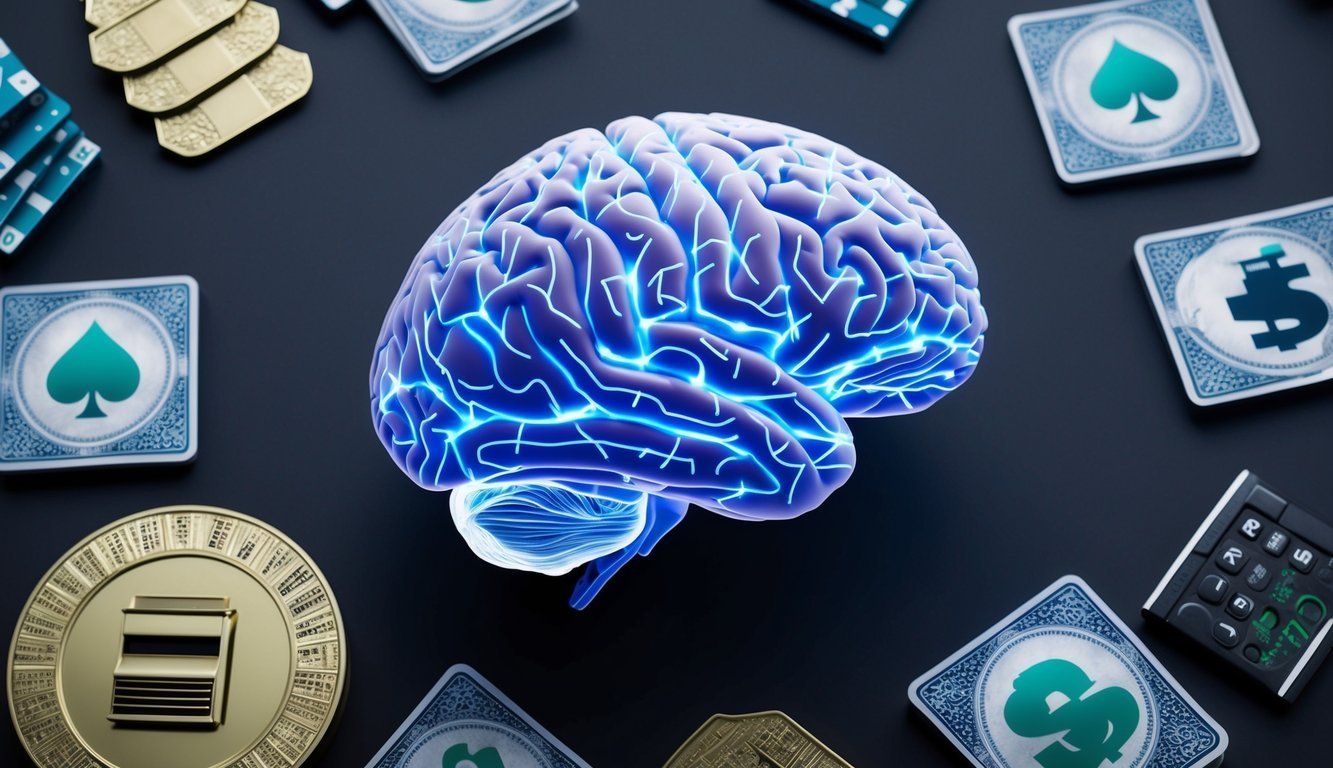PsychNewsDaily Publishers
100 Summit Drive
Burlington, MA, 01803
Telephone: (320) 349-2484
PsychNewsDaily Publishers
100 Summit Drive
Burlington, MA, 01803
Telephone: (320) 349-2484
Behavioral addictions involve compulsive activities lacking substance use, impacting daily life and mental health. Common types include gambling, internet, gaming, shopping, sex, food, and exercise addictions.

Behavioral addictions refer to compulsive involvement in activities that do not involve substances but can profoundly affect a person’s daily life. These types of addictions resemble substance use disorders, as they revolve around specific behaviors rather than chemical substances.
Behavioral addictions are marked by an individual’s inability to regulate their participation in certain activities despite experiencing negative repercussions. Typically, these addictions revolve around activities that are inherently enjoyable or satisfying.
The understanding of behavioral addictions has broadened in recent years, leading researchers to identify an array of compulsive behaviors.
Individuals may experience considerable distress and impairment across various life aspects, including work, relationships, and personal health. Commonly, behavioral addictions follow a pattern of escalation, where the individual feels compelled to engage more frequently or intensely to achieve the desired effect.
Research has identified and examined several forms of behavioral addictions, including:
Each form of behavioral addiction presents distinct characteristics and habits. For instance, gambling addiction is characterized by ongoing problematic gambling behavior that results in clinically significant distress or impairment. Conversely, internet addiction involves excessive or poorly managed engagement with online activities and computer use.
While there are parallels between behavioral and substance addictions, certain critical distinctions exist. Both conditions involve compulsive behaviors and a loss of control, yet behavioral addictions do not entail the consumption of psychoactive substances.
Similar neural pathways are activated by behavioral addictions as those engaged by substance dependencies, particularly within the brain’s reward system. However, their physical health effects can differ significantly; substance addictions generally result in direct physiological changes, whereas behavioral addictions mainly affect mental health and social functioning.
The Diagnostic and Statistical Manual of Mental Disorders (DSM-5) recognizes gambling disorder as a behavioral addiction, with other potential addictions under investigation for future inclusion.

Behavioral addictions arise from intricate interactions between psychological dynamics and neurological systems, which drive compulsive actions and complicate impulse and emotional management.
Dopamine is pivotal in behavioral addictions. This neurotransmitter facilitates reward processing, motivation, and learning.
In the context of addiction, the regulation of dopamine release can become disrupted, resulting in increased sensitivity to cues associated with the addiction.
The reward system of the brain may become hypersensitive, fostering intense cravings and urges. Such hypersensitivity can linger even after extended periods of abstinence, increasing the likelihood of relapse.
Repeated participation in addictive activities can modify dopamine signaling pathways, which might reduce sensitivity to natural rewards, compelling individuals to pursue progressively intense stimuli for the same satisfaction level.
Behavioral addictions often involve cognitive distortions, such as rationalizing, minimizing, and denying the seriousness of the addiction. These thought patterns can sustain the addictive cycle by undermining motivation to change.
Individuals struggling with behavioral addictions frequently experience emotional dysregulation, finding it challenging to cope with negative feelings and resorting to addictive behaviors as a maladaptive coping strategy.
Impulsivity and impaired decision-making skills further contribute to both the development and maintenance of behavioral addictions, aspects that can be addressed via cognitive-behavioral therapy techniques.
Continual compulsive behaviors may lead to both structural and functional shifts in the brain, potentially influencing regions responsible for impulse control, decision-making, and emotional regulation.
Long-term participation in addictive behaviors can lead to reductions in gray matter volume in specific brain areas, impacting an individual’s ability to manage impulses and emotions.
Behavioral addictions frequently coincide with other mental health conditions, such as depression and anxiety, complicating treatment options and heightening the risk of relapse.
Chronic compulsivity can hinder daily functioning, contributing to social isolation, financial difficulties, and diminished productivity. These effects can further intensify the cycle of addiction and emotional turmoil.

Diagnosing behavioral addictions requires evaluating specific criteria, recognizing various signs and symptoms, and considering any potential comorbidities with other mental health disorders. Accurate identification is essential for effective management and treatment.
The DSM-5 identifies gambling disorder as the primary behavioral addiction and categorizes other potential addictions under “Conditions for Further Study.” Common diagnostic criteria include:
These criteria are typically adapted from substance use disorders to suit specific behavioral addictions.
Common indicators of behavioral addictions encompass:
Symptoms can differ based on the addiction type; for example, gaming addiction may involve lengthy play sessions, while compulsive shopping might lead to accumulating unnecessary items.
Behavioral addictions often coexist with other mental health conditions. Common comorbidities include:
The COVID-19 pandemic may have aggravated certain behavioral addictions, particularly internet and gaming addictions, due to increased isolation and online activities.
Recognizing comorbidities is vital for creating comprehensive treatment plans. Individuals with multiple disorders may require integrated interventions that address all concurrent issues.

Effective approaches to tackling behavioral addictions encompass various therapies, medications, and support systems aimed at altering problematic behaviors, managing underlying psychological issues, and providing ongoing recovery assistance.
Cognitive Behavioral Therapy (CBT) serves as a primary intervention for behavioral addictions, aiding individuals in identifying and modifying negative thought patterns and behaviors associated with their addiction. Therapists collaborate with clients to create coping strategies and skills for preventing relapse.
Exposure therapy, a facet of CBT, gradually introduces individuals to triggers in a controlled context, reducing cravings and anxiety over time.
Another effective method is Motivational Interviewing, which enhances an individual’s willingness to change by exploring and resolving their ambivalence regarding addictive behaviors.
Group therapy offers valuable peer support and enables participants to learn from shared experiences, particularly beneficial for those with gambling issues or other behavioral addictions.
Although behavioral addictions generally do not involve substance misuse, medications can still aid treatment efforts.
Antidepressants, especially selective serotonin reuptake inhibitors (SSRIs), may alleviate symptoms of depression or anxiety that commonly accompany behavioral addictions.
Naltrexone, an opioid antagonist, has demonstrated potential in reducing cravings and urges in those suffering from gambling disorder.
Additionally, mood stabilizers and anti-anxiety medications can be prescribed to address co-occurring mental health conditions that often coincide with behavioral addictions.
It’s crucial to remember that medication should always be administered in conjunction with psychotherapy and under careful medical supervision.
Support groups based on 12-step models provide essential peer support for individuals navigating behavioral addictions, fostering community and accountability.
Family therapy can play a critical role in addressing relationship dynamics that may influence the addiction, helping educate family members on the condition and how best to support their loved ones in recovery.
Holistic approaches, such as mindfulness practices and stress management techniques, complement standard treatments, assisting individuals in managing stress and enhancing self-awareness.
Continuous aftercare and relapse prevention strategies are vital for long-term recovery, which may include ongoing therapy sessions, participation in support groups, and the establishment of healthy coping mechanisms.